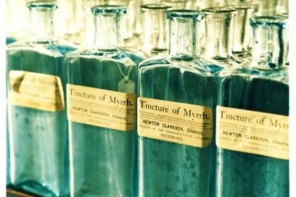Written by: Pippa Ehrlich
The World Wide Fund for Nature´s (WWF) Biodiversity and Wine Initiative (BWI) was established in 2004 with the aim of boosting joint efforts between conservation groups and South Africa´s wine industry, and now boasts 195 members.
The BWI´s mandate is to protect natural habitats and encourage sustainable farming practices. Last year the organisation launched a sustainability seal, which signifies that wine was produced using the greenest techniques available.
Nearly 95% of South Africa´s vineyards are located in the Cape Floral Kingdom (CFK), the most diverse and also the smallest plant kingdom on earth. This region is home to about 8 600 species. It is recognised as a global biodiversity hotspot and was inscribed as a Unesco World Heritage Site in 2004.
An increase in agriculture, urban development and invasive alien species has threatened the CFK in recent years, so much so that in 2004 there was just 4% of its unique Renosterveld vegetation group remaining. This situation was a catalyst for the establishment of the BWI.
In the years since the organisation’s launch, over 126 000 hectares of land, much of it within the CFK, have been conserved by BWI producers.
For every hectare under grape cultivation, a matching hectare of natural vegetation is set aside for conservation. The steady growth of this statistic means that the South African wine industry´s conservation footprint is greater than its current vineyard footprint.
Nurturing biodiversity is not only important for the Western Cape´s natural heritage. According to award-winning wine estate Vergelegen´s wine maker André van Rensburg, “You can only maintain virus-free vineyards and sustainable agriculture if you reduce the intensity of pesticides and herbicides. We have to restore nature and bring back species and ensure this farm is in a better condition than when we received it.”
Van Rensburg added that biodiversity complemented the current tendency of natural growing of wine, allowing for individual vineyards to show more of their true nature. It was also an acknowledgement of the market’s demand for more products grown in harmony with the soil.
Conserving South Africa’s wetlands
As well as encouraging general conservation, the BWI has had a positive impact on South Africa´s wetlands. One of the most important requirements for membership is that a farm must undergo an official process to declare that water effluent leaving the cellar is untainted with chemicals.
Anglo-American owned Vergelegen, a 310-year-old wine estate near Somerset West, 45km east of Cape Town, is a champion of wetland conservation.
In the same year that the BWI was established, Vergelegen embarked on an ambitious private conservation project to clear about 2 200 hectares of non-arable farmland, and return it to natural fynbos, the predominant shrubby type of vegetation that is found only in this region. Much of the land had been invaded by alien plants, which consume 50 to 800 times more water than the hardy fynbos.
According to Gerald Wright, the project’s environmental consultant, the rehabilitation of over 2 200 hectares for the sake of biodiversity is one of the best environmental projects in South Africa.
More than 1 000 hectares of densely packed invasive trees have already been cleared (of which 140 hectares is Renosterveld) and a wetland area that was virtually dead is now fed by six streams, some of which have not run for 50 years. The number of indigenous plant species recorded has grown from 22 to 45 and a species of lily thought to be extinct has been rediscovered.
The number of bird species has risen from 80 to 130 and there are frequent sightings of Verreaux´s eagles (also known as the black eagle), African fish eagles and malachite sunbirds. Secretary birds and blue cranes are breeding on the farm and visiting birds include Steppe buzzards from Russia and yellow-billed kites from North Africa.
The animal population is also thriving. Recently a rare Cape leopard was spotted on the farm. This magnificent creature has suffered increasing habitat loss over the years and is no longer found in many of its former range areas throughout the Cape province.
As part of the project, Vergelegen established a Centre of Learning Excellence which focuses on environmental skills. The centre has attracted numerous local and international researchers and to date has produced three doctorates and five masters theses.
Creating jobs through conservation
Vergelen´s conservation project is also helping to alleviate unemployment in the Western Cape. Originally, 40 formerly unskilled people were hired and trained to perform the back-breaking task of alien clearing.
Committed nature lover Giselle Roos heads up the team of local contractors. “This has created jobs for people, and I´ve taught them how to operate machines. I love working in nature, and doing this job.“
A significant increase in manpower is necessary to ensure achievement of the project´s 2014 deadline. The estate has sourced additional funding, and according to Wright, by the time all 2 200 hectares have been cleared, a total of 165 people will have an income.
The liveeco team





